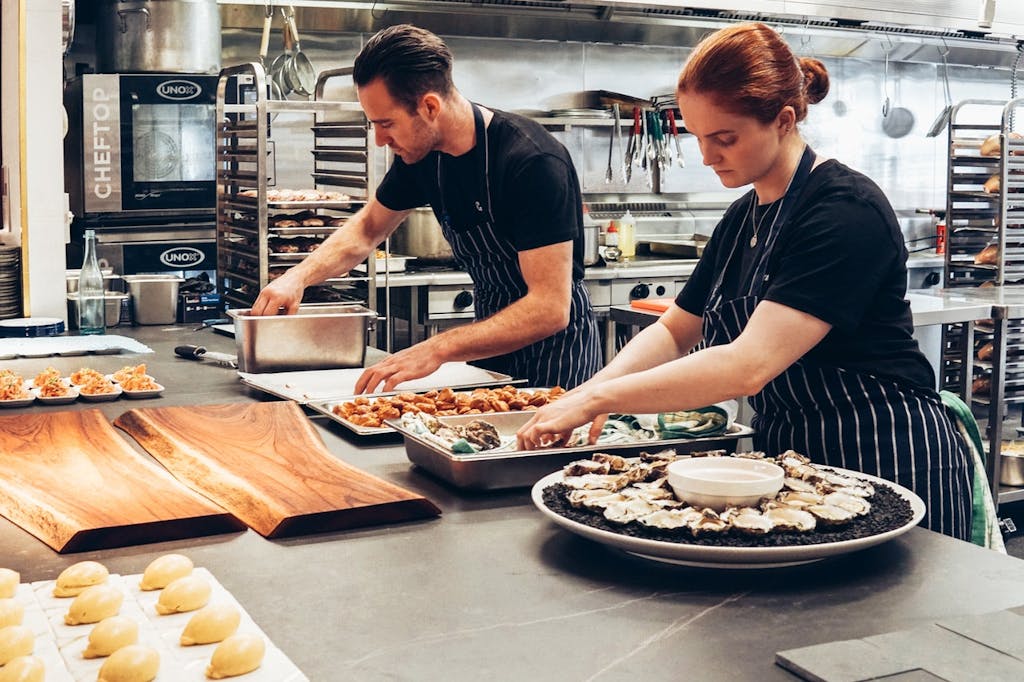On February 28, Canadian product manager Tom Redman posted a tweet that, unfortunately for him, made him the main bad guy of Twitter that day. He was announcing a new project called Recipeasly, a website that would allow users to strip ads and contextual “life stories” from recipe sites like Serious Eats and food blogs, allowing them to skip right to the recipe content. Within a few hours, Redman took the site down in response to overwhelming criticism over its business model, which would strip content that is already provided to readers free of charge and allegedly rob bloggers of necessary income from ad revenue. He got dunked on, hard.
Even though this all happened about a week ago, which is ancient history in the news business, I’m writing about it now because this is a conversation that comes up again and again, often among people who think that “I just want the recipe” is an original thought. And yeah, I search for recipes online as much as the next person, and if I don’t feel like reading the prose at the top, scrolling to the recipe takes me less than a second. If scrolling over something you didn’t want to read is the hardest thing you had to do all day, you’re among the luckiest people on the planet.
In a 2019 recipe column for The Chronicle, cookbook author Nik Sharma wrote, “Unlike a kite whose string is cut and then floats aimlessly in the wind, a recipe with context can be a powerful tool.” Context reveals the whys of ingredient choice; the labor a recipe developer goes through to reverse-engineer and document a dish; and the reasons why a dish matters to someone. One of the strongest arguments for the necessity of context was the pizza dough cinnamon roll recipe sent out in a newsletter by Mario Batali, tacked on at the tail-end of a sexual misconduct apology letter. You could certainly just skip to the recipe, but you’d really be missing a lot.
Recipes are ideas that are made by people, and all of the messy stuff that can precede them is a reminder of that fact. People aren’t convenient; they might be annoying; they can care about a lot of things that you might not care about, and vice versa. We all deserve recognition for our labor: Sometimes that means money that you give me in exchange for goods and services, and sometimes that means you just have to read (or even just scroll through) a story about why I’m transcribing my grandmother’s cherished recipes for you to try at home. You shouldn’t just get to pretend that someone doesn’t matter while you enjoy the fruits of their labor.
At the very least, rather than complaining, be the change you want to see in the world: Put your money where your mouth is and just buy the damn cookbook.
On the podcast

Chef and owner Reem Assil places turnovers on a tray at Reem’s California on Mission Street in San Francisco.
Scott Strazzante / The ChronicleJustin and I go all in on capitalism on this week’s episode, which features an interview with Bay Area restaurateur and activist Reem Assil, who is currently in the process of transforming her restaurants into worker-owned operations. During the pandemic, Assil’s restaurants have really stretched and messed around with the traditional definition of what a restaurant can and should be: Her team has been hard at work making meals for frontline workers, unhoused people and low-income community members while also cooking meal kits for customers. She told us all about that work and talks about what it takes to build a better workplace. Listen and subscribe here.
What I’m eating
While out in the Sunset District one morning, I ordered the braised duck leg noodle soup ($10.25) from Thai Nghiep Ky Mi Gia, a Teochew restaurant on Noriega Street. As I waited, the sight of neighborhood elders queuing up at a nearby medical center for Covid vaccine appointments made my heart soar. When I finally brought the soup home, it was comforting in a different way: deeply savory and clear, with springy egg noodles and a generously sized and tender piece of duck making it a meal. The restaurant also provides pickled chile slices and hot red chile oil with the soup to excite the palate — use them!
And as I write this newsletter, I’m eating the leftovers of a massive meal from Nicole Marin’s Baja Californian Hermanita pop-up. Marin has been selling pollo adobado (a whole roast chicken marinated with chile pepper and warm spices) for delivery on Thursdays and Fridays, and the package comes with roasted root vegetables, an electrifying cilantro and onion salsa, and a big ol’ salad. For $45, it’s a ton of truly delectable food from a talented chef.
Recommended reading
• COVID vaccines are rolling out to food workers, though many still have worries over working in the restaurant world during the pandemic. Janelle Bitker talked to workers who are navigating complicated feelings about getting vaccinated while also advocating for the safety of their colleagues.
• Writer Andrea Aliseda has a thoughtful essay about quesadillas in her new newsletter. It’s a food that she says is “cardinal to the Mexican diet,” though its origins — and even ingredients — are often up for debate within Mexico.
• This week, I got to write about an oft-underplayed aspect of dining out in the Bay Area: ceramics, and the great intentions that they signify. I spoke to three artisans who make ceramic plates, cups and other vessels for retail and restaurants about their work, and now I’ll never look at a plate the same way.
Bite Curious is a weekly newsletter from The Chronicle’s restaurant critic, Soleil Ho, delivered to inboxes on Monday mornings. Follow along on Twitter: @Hooleil


:max_bytes(150000):strip_icc()/types-of-engagement-ring-settings-guide-2000-86f5b8f74d55494fa0eb043dee0de96e.jpg)

More Stories
Low Carb Gluten Free Apple Crisp
Vegetarian Shepherd’s Pie Recipe – Pinch of Yum
Our Favorite Broccoli Cheddar Soup